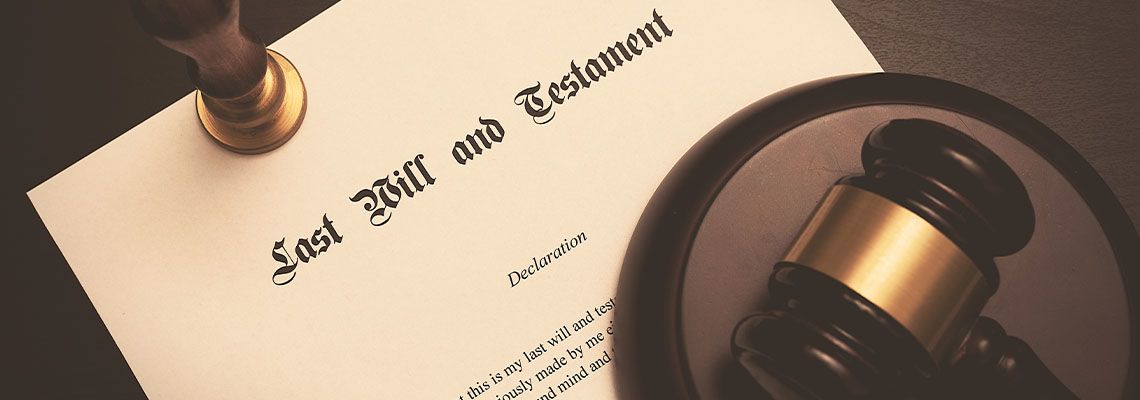Providing Exceptional Legal Counsel for Over 25 years Get Started Today

I Lost the Original Will but I Have a Copy
A will is the backbone of many people’s estate plans, and having a valid will in place can ensure your wishes for your estate are honored after you pass away. However, since the actual administration of your will is left to your executor and heirs, issues can arise if they only have a copy of the will and not the original signed document.
If you’ve recently lost a loved one and can only locate a copy of their will, you may face many legal hurdles, such as trying to go through probate and distributing assets to the beneficiaries. In cases like this, it can be helpful to work with a probate attorney who can evaluate your specific circumstances and advise you on the best path forward. If you’re in the Los Alamitos, California, area—or anywhere throughout Los Angeles County, Orange County, Huntington Beach, Newport Beach, Cerritos, Santa Ana, Anaheim, and Long Beach—call me at the Law Offices of Lawrence H. Nemirow PC for help.
Overview of Wills
When most people begin estate planning, they’ll start by writing a will. This is most often typed out electronically so that both a hard copy of the original exists and a digital copy. Handwritten wills (called holographic wills) are also accepted in California, but they can pose authenticity and validity issues. Any will must be signed by the testator (the person writing it) and witnessed by at least two people. The witnesses are also required to sign a legal affidavit attesting to the testator's mental capacity at the time the will was written.
Within a will, the testator can list their assets and assign them to be given to a certain beneficiary after they pass away. The testator can also name a legal guardian for any minor children, as well as name an executor, the individual responsible for administering the will and ensuring the assets are distributed. Some commonly inherited assets include homes or land, vehicles, family heirlooms, jewelry, furniture, artwork, money, investment funds, stocks, or bonds.
Why Having a Will Is Important
When someone dies without a will in place (known as dying “intestate”) there is no legal record of what should happen with their estate. The matter will then be referred to the courts, and the estate must go through the legal process of probate. During this time, a judge will assign an administrator (typically a surviving spouse or adult child) who will need to work with the courts to locate and inventory the deceased’s estate, address any past due debts or taxes, notify family members and creditors, then decide who will receive what assets.
This can be an extremely long, stressful, and expensive undertaking for your loved ones. By taking the time to write out a valid will ahead of time, you can greatly reduce the burden that’s left on your loved ones.
What Happens if I Only Have a Copy of My Loved One’s Will?
If you don’t have the original will, you need to know your next steps. While this doesn’t necessarily preclude you from being able to use it, there are several factors you’ll need to take into account:
Assumption that the original was intentionally destroyed or revoked: In most cases, when you can’t present an original copy of the will, the court will assume that the original was either revoked by the testator or intentionally destroyed by them (the equivalent of revoking it). It will then be up to you to prove that this is not the case.
Reason that the original can’t be produced: The courts will generally recognize the difference between simply losing the will and showing that something beyond your control happened, such as a fire.
Proving the copy meets the legal requirements: If you want to convince the court that the copy you have is legally binding you’ll need to prove three things:
The original will was legally executed and signed by the testator.
The contents of the copy are essentially the same as the original, and there’s no conflicting evidence to the contrary.
The testator did not revoke or destroy the original prior to their death.
Oral bequests will not suffice: A judge will almost certainly deny your claim if the deceased only left behind an “oral bequest,” meaning they only left a will that was spoken to the witnesses but never put on paper and signed. These are sometimes referred to as “nuncupative” wills, and they are not valid in California.
I’m Here to Help
If you’re in the Los Alamitos, California area and have questions regarding a will that your loved one left behind, or any aspect of the probate process, reach out to the Law Offices of Lawrence H. Nemirow PC to schedule a consultation.
